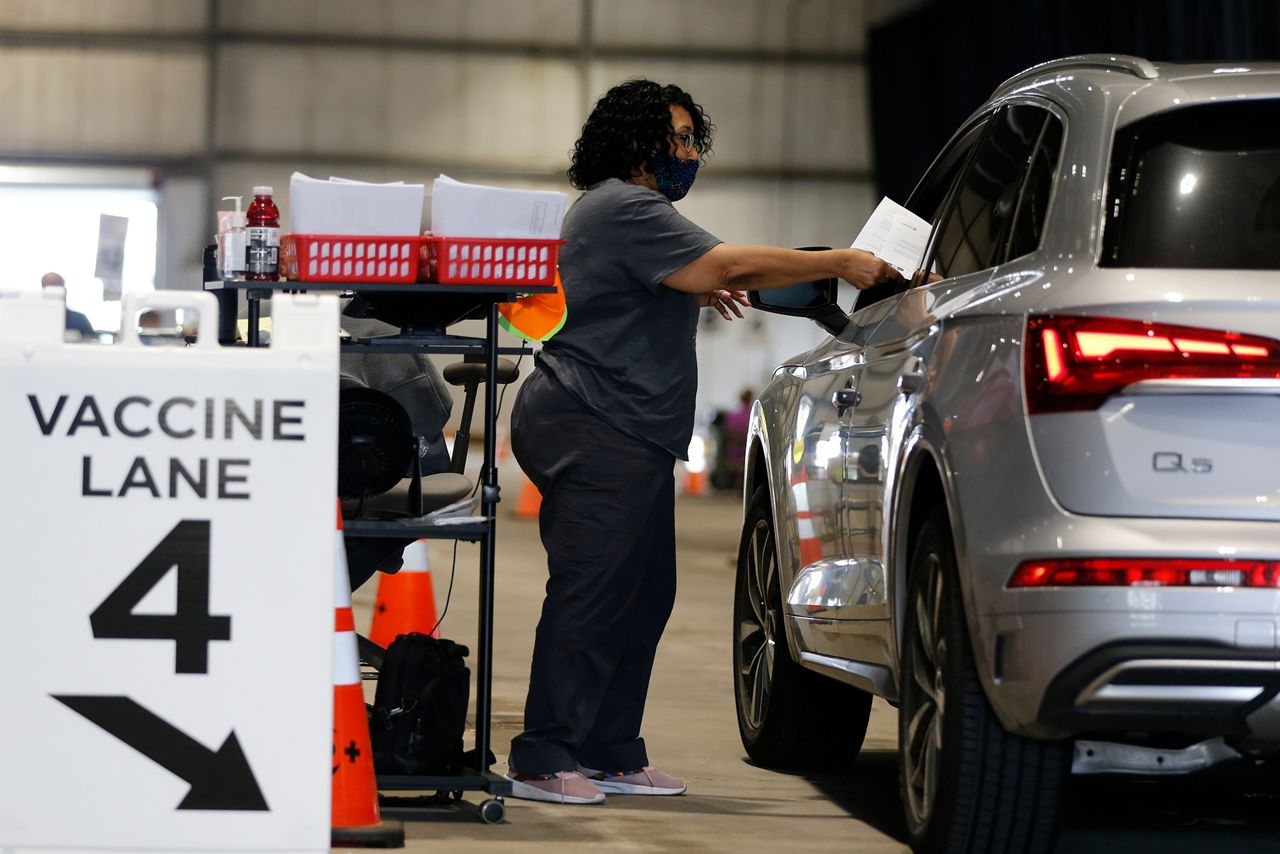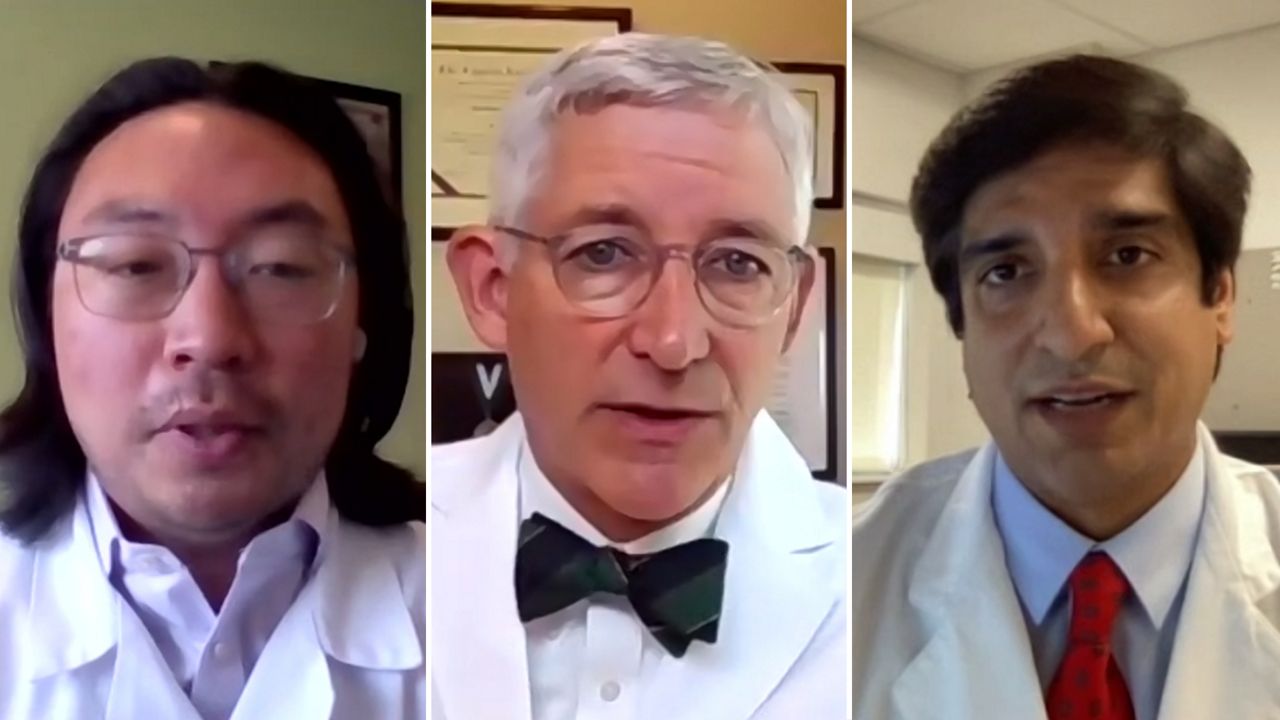COLUMBUS, Ohio — Medical experts in Ohio, including the state’s top health officials, said the benefit of COVID-19 vaccination far outweighs a risk of developing a rare vaccine side effect that primarily impacts young men.
What You Need To Know
- Health experts recommend vaccination for all age groups despite the side effect
- Dr. Vanderhoff said there is greater risk of myocarditis from the virus than from vaccination
- The rare instances of heart inflammation are more common among young men
Following a Centers for Disease Control and Prevention committee meeting, the U.S. Food and Drug administration said Wednesday it will add a caution about the likely link to rare cases of the condition myocarditis to fact sheets and warning labels for the mRNA COVID-19 vaccines.
Ohio Department of Health Chief Medical Officer Dr. Bruce Vanderhoff said myocarditis is “an inflammation of the heart muscle, which can reduce the heart's ability to pump and can cause rapid or abnormal heart rhythms.”
The signs and symptoms include chest pain, fatigue, shortness of breath, arrhythmias and pericarditis, which is a swelling or irritation of the membrane surrounding the heart, he said.
But Vanderhoff said he is still strongly encouraging vaccination against COVID-19 for all residents of Ohio, even the young men who are at higher risk. He noted that in the U.S., 2,767 COVID-19 deaths have been reported in the 12-29 age group, with 316 of those deaths having been reported since April 1.
Ohio is awaiting updated fact sheets and treatment guidance from the FDA and CDC, Vanderhoff said. The state plans to provide updated information to residents and to vaccine providers in the coming days.

In addition to rare vaccine-associated myocarditis, Vanderhoff said the condition can be caused by viral illnesses, including COVID-19, bacterial infections – like strep and mycoplasma – and some common medicines, like antibiotics.
Myocarditis cases are rare, occurring at a rate of 12.6 per million inoculations with both mRNA vaccine doses, and Vanderhoff stressed that most of the cases are mild.
Of about 1,200 cases of the rare condition submitted to the national vaccine monitoring safety system, there were 484 cases among people under 30, the vast majority affecting men, and 323 cases where the CDC confirmed a link to vaccination, officials said Wednesday.
The news of the link between vaccination and the rare side effect helps explain a few cases of myocarditis among Mount Carmel Health patients this year, cardiologist Dr. Frank Tice said in an interview.
“There had been a handful of patients that we've seen that have had recent vaccinations and now that the link is becoming more apparent, in retrospect, it is clear that they were probably in fact related to the vaccine, but the overall number has still been quite small,” he said.
All of those patients have been discharged and none of the cases were particularly serious, he said. Conversely, Mount Carmel has seen many serious cases of heart inflammation from COVID-19, including some that have contributed to COVID-19 deaths.
“We've certainly seen a much more significant number of patients with myocarditis as a consequence of infection with COVID-19 than we have individuals that it’s related to the vaccine,” Tice said.
The spread in Ohio of the more contagious Delta variant puts unvaccinated Ohioans at even greater risk, Vanderhoff said.
“For those who are unvaccinated, they're now facing a virus that has demonstrated an ability to sweep through communities and put a lot of people into hospitals,” Vanderhoff said. “It should be a wake up call for us.”
Dr. Saurabh Rajpal, an Ohio State Wexner Medical Center cardiologist, explained that he worked on a research study with other Big Ten universities studying rates of myocarditis in athletes who contract COVID-19. The researchers found that 2.3% of the competitive athletes who had COVID-19 showed myocarditis in MRIs, with a higher rate among males than females.
It’s understandable for parents to be concerned, Rajpal said, but a risk-benefit analysis shows vaccination is wise.
“The estimated rate of myocarditis is 12.6 per million second doses administered. If we compare this number to clinical myocarditis in our cohort, the risk is much lower, about 400 times lower. Even if we compare the highest risk group, which is the 12- to 17-year-old age group of males, the estimated risk is about 70 per million second doses administered, which is still about 70 times lower than the risk of myocarditis with COVID,” Rajpal said.
Pediatric cardiologist Dr. Simon Lee of Nationwide Children’s Hospital said there is a real risk of myocarditis for those who contract COVID-19, but in his assessment relatively low risk for those who get vaccinated because the cases don’t appear to be the severe form of the condition, known as fulminant myocarditis.
“In terms of the vaccine-associated myocarditis, fortunately, most of these reported cases appear to be mild and to resolve without treatment or significant intervention,” he said. “I'm not aware of any patients yet with vaccine-associated myocarditis who have had fulminant myocarditis, which again is this most severe and dangerous form.”
Myocarditis associated with COVID-19 can be of the more severe variety, and it is far more common that myocarditis from vaccination, Vanderhoff said.
“As the highly contagious Delta variant begins to spread through our country, there's really no time like the present to make the choice to be vaccinated,” he said.



